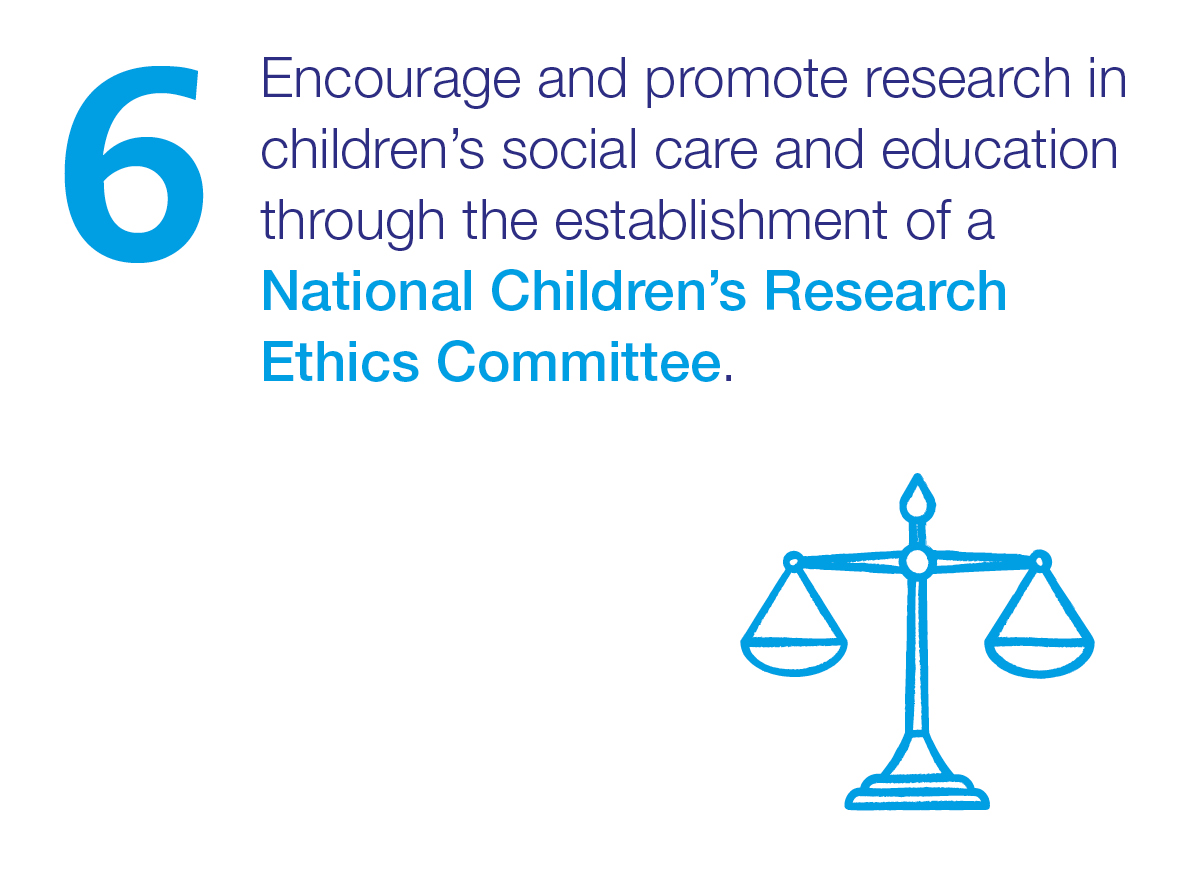The Mulberry Bush Charity Manifesto
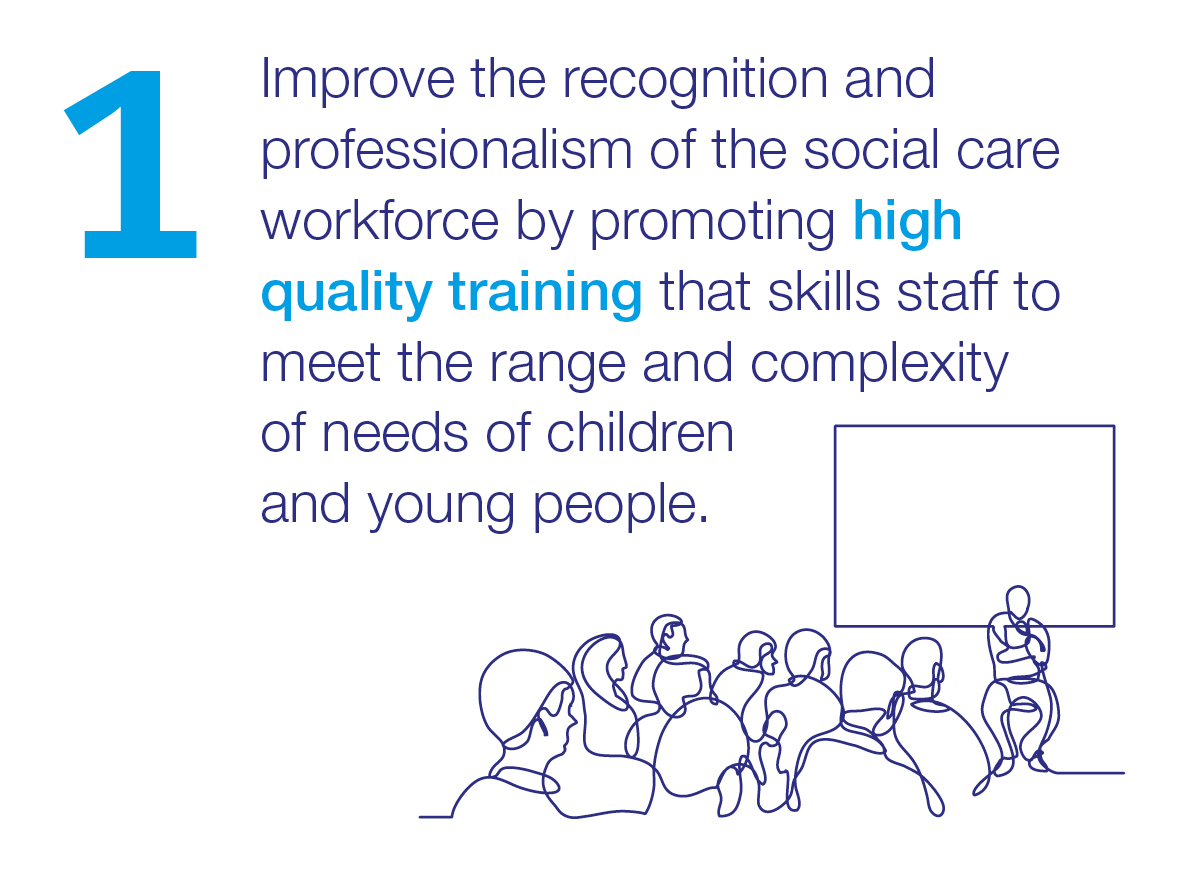
Early intervention is crucial for child development, particularly in the first five years when cognitive, emotional, and social foundations are laid. As a charity, we urge the government to prioritise early intervention to ensure children receive timely support for developmental, behavioural, and health issues. This proactive approach reduces the need for more intensive interventions later and sets the stage for lifelong success.
Supporting families is equally important. Prioritising early intervention equips families with necessary resources such as parenting education, healthcare, and social support. This helps create stable home environments, breaking cycles of disadvantage and providing all children with a strong start in life. By investing in early intervention, the government can enhance both immediate and long-term outcomes for children and their families.
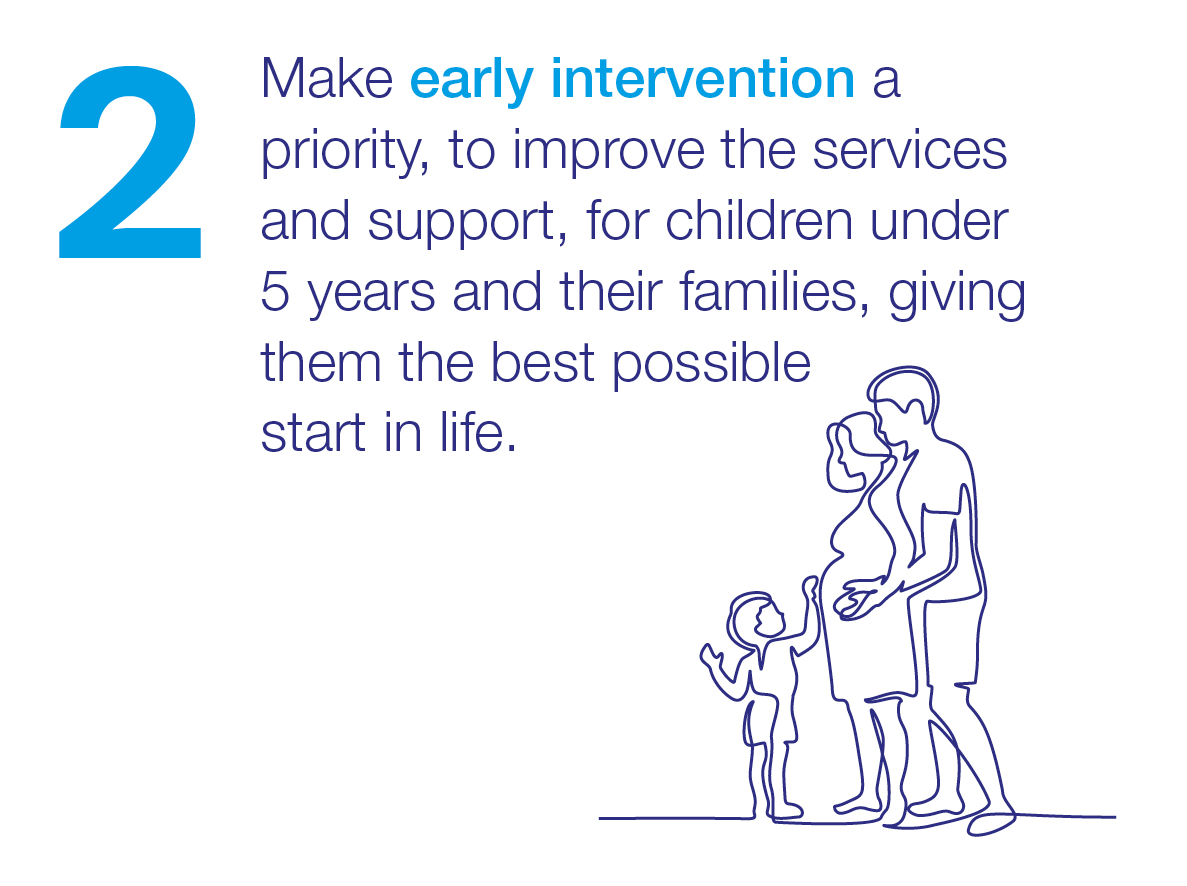
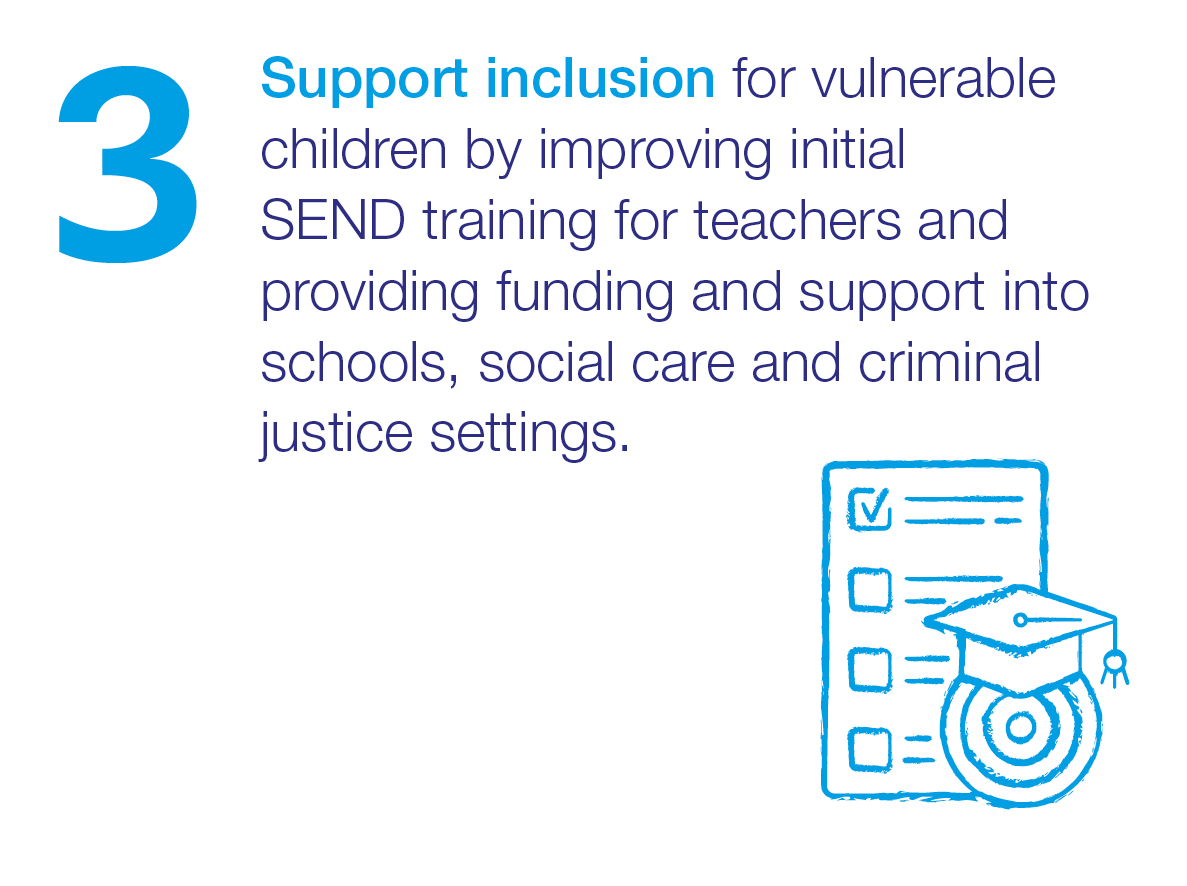
Introducing a regulatory body that promotes and shares best practices through a peer review framework is crucial for improving children’s services. As a charity, we urge the government to establish such a body to foster continuous improvement and collaboration. Unlike traditional oversight methods that use one-word judgments, a peer review system provides detailed feedback and constructive dialogue, helping identify strengths and areas for improvement. This approach encourages innovation and excellence across the sector.
Moving away from one-word judgments also reduces the stigma and pressure associated with regulatory assessments. Simplistic ratings can demoralise staff and overlook service delivery complexities. A peer review system promotes transparency and shared learning, creating an environment where professionals feel valued and supported. This can lead to more engaged and motivated staff, ultimately benefiting the children and families they serve. Implementing this model would ensure a more effective and compassionate approach to improving standards in children’s care and education.
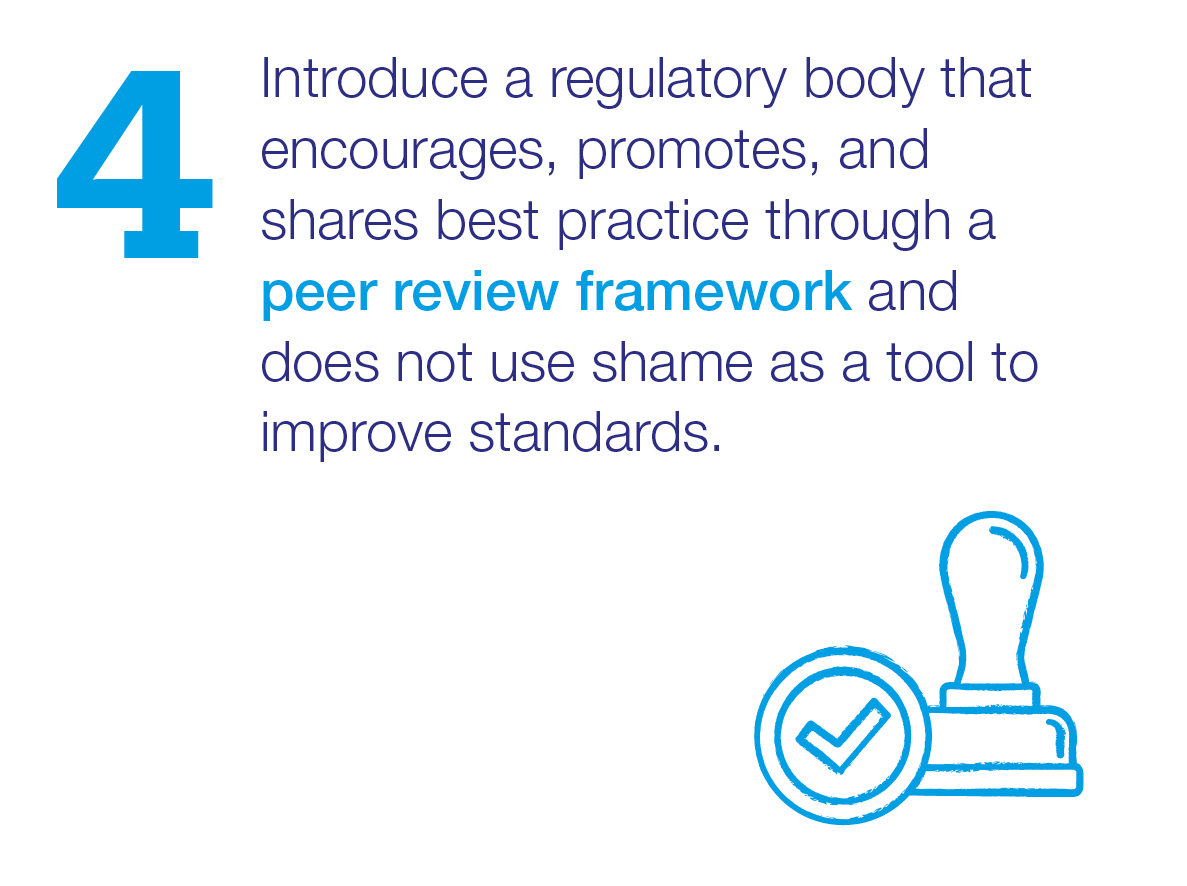
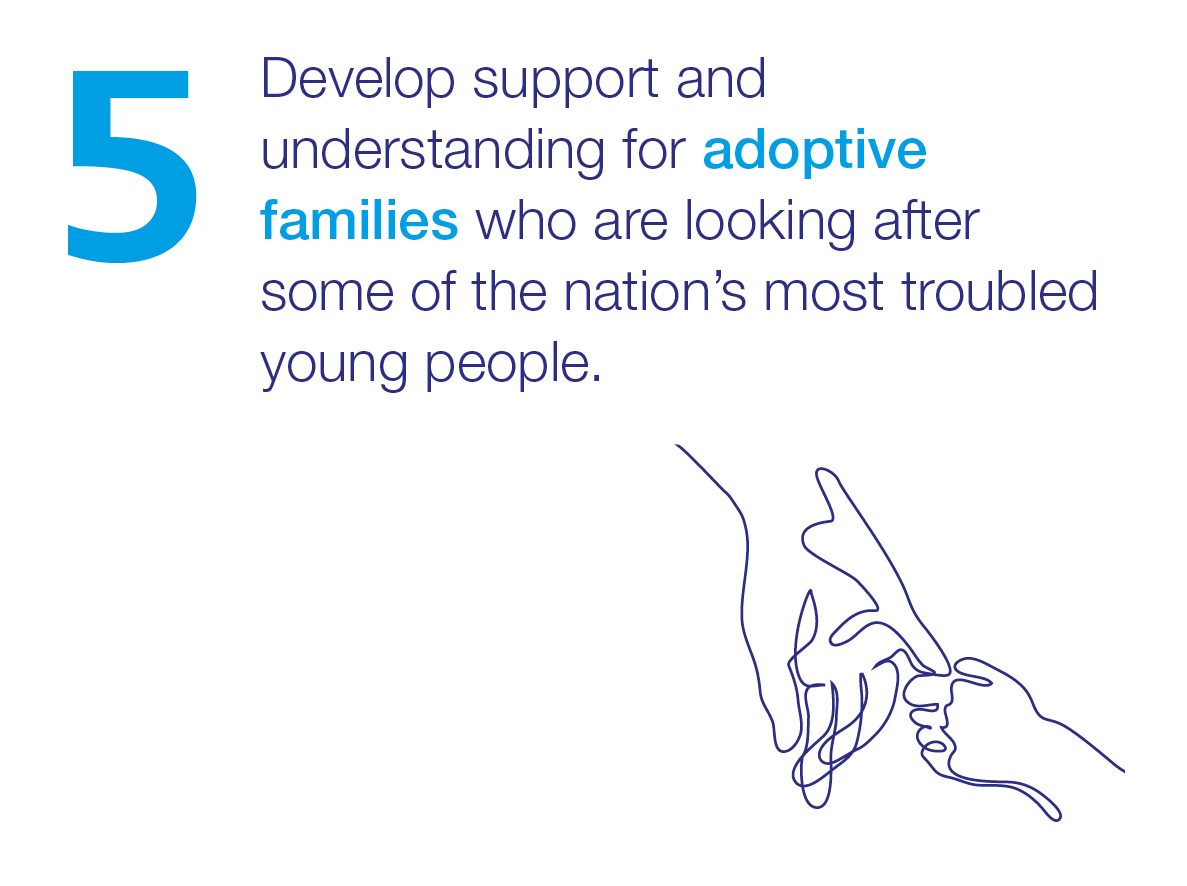
Developing support and understanding for adoptive families caring for troubled young people is crucial for their stability and well-being. As a charity, we urge the government to take action by providing tailored support services to meet their unique needs. Adoptive families often confront significant challenges in nurturing children who have experienced trauma or adversity, necessitating access to specialised counselling, therapeutic interventions, and respite care.
Moreover, fostering empathy and awareness towards adoptive families is vital in combating stigma and isolation. Many adoptive parents may feel overwhelmed or misunderstood due to the complex needs of their children. Government initiatives aimed at raising awareness and facilitating community-based support networks can help alleviate feelings of isolation and connect families with peer support. Recognising the pivotal role of adoptive families ensures they receive the recognition, resources, and understanding necessary for their well-being and the children they care for.
Encouraging research in children’s social care and education is vital for improving interventions and practices. As a charity, we stress the need for the government to establish a Children’s Research Ethics Board, enabling research in non-Higher Education Institute services. This initiative broadens research participation beyond academia, allowing frontline professionals directly involved in children’s care and education to contribute valuable insights.
By facilitating research in non-academic settings, the government can tap into practical knowledge and experiences from frontline professionals. Establishing a Children’s Research Ethics Board ensures ethical standards while empowering services to conduct relevant research. This collaborative approach fosters evidence-based practices, leading to better outcomes for children in social care and education.
